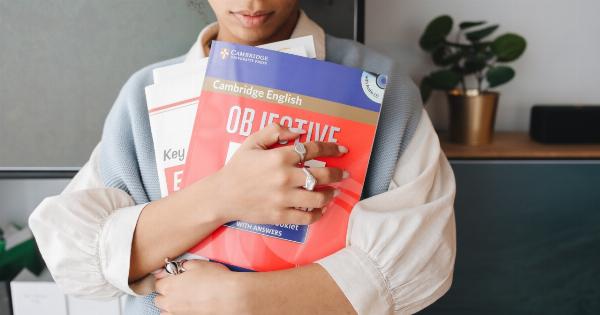Getting good grades in school is not always easy, but with the right study habits, it can become effortless. By implementing effective strategies and techniques, you can enhance your learning and improve your academic performance.
In this article, we will explore ten study habits that can help you achieve good grades effortlessly.
1. Create a Study Schedule
One of the most crucial study habits is to create a study schedule. Having a dedicated time slot for studying each day will help you stay organized and focused. Choose a time when you are most alert and productive.
Stick to your schedule consistently, and you will develop a routine that promotes effective studying.
2. Find a Quiet and Comfortable Study Space
Creating an ideal study environment is essential. Find a quiet space where you can concentrate without distractions. Make sure it is well-lit and comfortable. Minimize noise and visual disruptions to optimize your focus and concentration.
3. Set Clear Study Goals
To study effectively, set clear goals for each study session. Define what you want to achieve during that time. Break down larger tasks into smaller, manageable goals. Having a sense of purpose will make your study sessions more productive and rewarding.
4. Take Regular Breaks
While it may seem counterintuitive, taking regular breaks is essential for effective studying. Research suggests that our attention span diminishes after a certain amount of time.
Therefore, taking short breaks during your study sessions can rejuvenate your mind and help maintain focus.
5. Use Active Learning Techniques
Active learning techniques involve engaging with the study material actively. Rather than passively reading or listening, try methods like summarizing key points, asking questions, or teaching the material to someone else.
These techniques promote deeper understanding and retention of information.
6. Use Visual Aids
Visual aids are powerful tools for learning and memory retention. Incorporate visual elements like diagrams, charts, and graphs into your study materials.
Visual representations can make complex concepts more accessible and aid in recalling information during exams.
7. Practice Regularly
Practice makes perfect, especially when it comes to studying. Regular practice helps reinforce learning and improves recall.
Solve practice problems or attempt sample questions regularly to test your understanding and identify areas that need further attention.
8. Take Effective Notes
Note-taking is an essential skill for effective studying. Develop a note-taking system that works for you, whether it’s using bullet points, highlighting key ideas, or creating mind maps.
Review and revise your notes regularly to enhance understanding and memorization.
9. Utilize Technology Wisely
Take advantage of technology to enhance your study habits. Use educational apps, online resources, and digital tools to access additional learning materials and practice resources.
However, be mindful of potential distractions and use technology wisely to supplement your studies rather than overwhelm them.
10. Get Sufficient Sleep and Maintain a Healthy Lifestyle
Lastly, prioritize your well-being. Getting enough sleep is vital for memory consolidation and cognitive functioning. Maintain a healthy lifestyle by eating well, exercising regularly, and managing stress.
When your mind and body are in balance, studying becomes easier and more effective.
Conclusion
By implementing these effective study habits, you can achieve good grades effortlessly. Creating a study schedule, finding a suitable study space, setting clear goals, and using active learning techniques are all essential for successful studying.
Additionally, taking breaks, utilizing visual aids, practicing regularly, and using technology wisely can enhance your learning experience. Finally, prioritize your well-being to ensure optimal cognitive functioning. With these habits in place, you are well on your way to achieving academic success.































